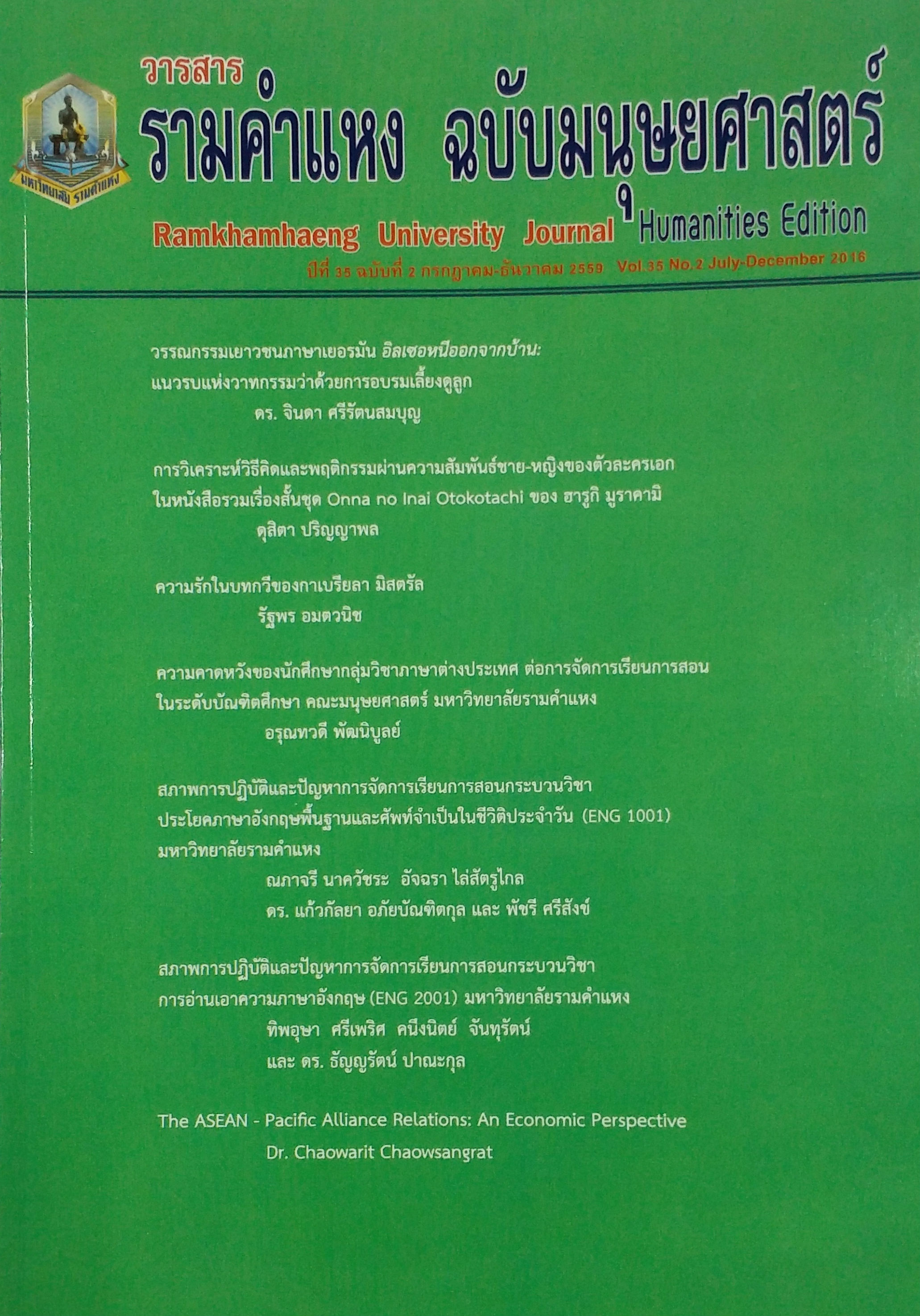การก้าวข้ามความแตกต่างทางศาสนาและชาติพันธุ์ ในวรรณกรรมเยาวชนของฆอซี เกาะดีร์1 Transcending Religious and Ethnic Differences in Ghazi Abdel-Qadir’s Young Adult Literary Works
Main Article Content
บทคัดย่อ
บทคัดย่อ
บทความนี้ศึกษาแก่นเรื่องการก้าวข้ามความแตกต่างทางด้านศาสนาและชาติพันธุ์ในวรรณกรรมเยาวชนภาษาเยอรมันเรื่อง มุสตาฟากับถาดขายของ และเรื่อง ของขวัญจากคุณย่าซารา ของ ฆอซี อับเดล-เกาะดีร นักเขียนพลัดถิ่นจากปาเลสไตน์ในเยอรมนี ในวรรณกรรมทั้งสองเรื่อง แก่นเรื่องดังกล่าวได้รับการนำเสนอผ่านเรื่องราวของตัวละครเยาวชนในดินแดนตะวันออกไกล เรื่องแรกนำเสนอปัญหาการกีดกันทางชาติพันธุ์และความไร้สาระของการปักปันเขตแดน ทำให้กลุ่มชาติพันธุ์อาหรับแตกกระจายเป็นหลายประเทศ นำไปสู่การแบ่งเขาแบ่งเราระหว่างกลุ่มชาติพันธุ์อาหรับด้วยกัน ผ่านประสบการณ์การเรียนรู้และการเอาตัวรอดของมุสตาฟา ตัวละครเอกชาวเลบานอนในคูเวต ส่วนเรื่องที่สองเล่าถึงลีอานา ตัวละครเอกชาวเลบานอนที่ได้เรียนรู้มิตรภาพระหว่างชาวคริสต์และชาวมุสลิมในหมู่บ้านชนบทแห่งหนึ่งในเลบานอนผ่านการเตรียมพิธีศพของตัวละครย่าผู้เป็นคริสต์ศาสนิกชนแต่ต้องการจัดงานศพของตนตามแบบอิสลามิกชน
Abstract
This article presents a study of the theme of the transcendence of religious and ethnic differences in the German-language young adult literary works, Mustafa and His Vendor’s Tray (Mustafa Mit dem Bauchladen) and Grandmama Sara’s Gift (Das Geschenk von Großmutter Sara), written by Ghazi Abdel-Qadir, a diasporic Palestinian author based in Germany. In both works, this theme is presented through young adult characters in the Middle East areas. Mustafa and His Vendor’s Tray presents the problem of ethnic discrimination and the senselessness of border demarcation, which has caused the Arab ethnicity to be shattered into several countries and resulted in separatism among Arab ethnic groups, through the main Lebanese character Mustafa’s learning and surviving experiences in Kuwait, while in Grandmama Sara’s Gift, the theme is shown through the Lebanese protagonist Liana, who gets to learn about the friendship between Christians and Muslims in a countryside village in Lebanon, through the preparation for the funeral of her paternal grandmother who was a Christian but would like to have her own funeral according to Islamic tradition.
Article Details

อนุญาตภายใต้เงื่อนไข Creative Commons Attribution-NonCommercial-NoDerivatives 4.0 International License.
ประกาศลิขสิทธิ์จะปรากฏในเกี่ยวกับวารสาร ควรอธิบายสำหรับผู้อ่านและผู้เขียนว่าเจ้าของลิขสิทธิ์เป็นผู้เขียนวารสารหรือบุคคลที่สาม ควรรวมถึงข้อตกลงการอนุญาตเพิ่มเติม (เช่นใบอนุญาตครีเอทีฟคอมมอนส์) ที่ให้สิทธิ์แก่ผู้อ่าน (ดูตัวอย่าง) และควรให้วิธีการรักษาความปลอดภัยหากจำเป็นสำหรับการใช้เนื้อหาของวารสาร


